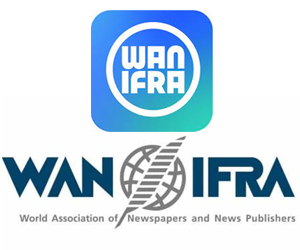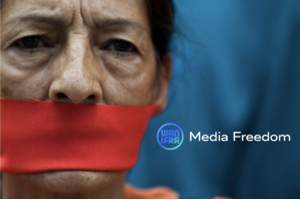Tech
Digital technologies directly benefit 70 percent of SDG targets, say ITU, UNDP and partners
Published
1 year agoon
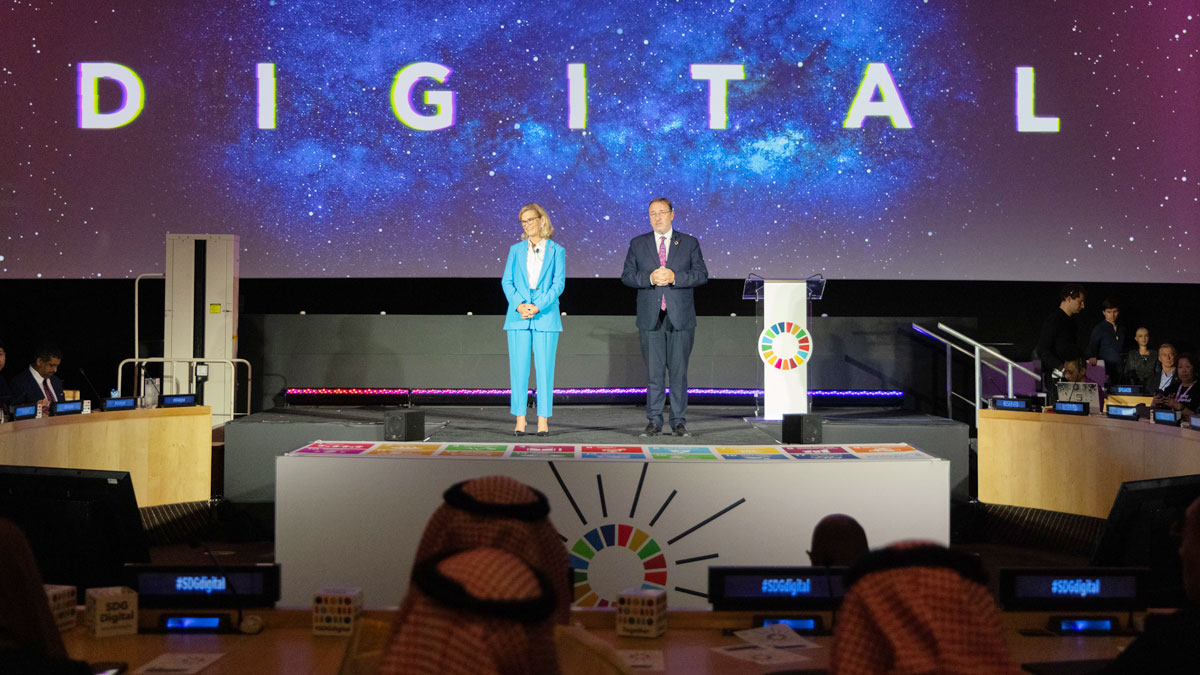
More than two-thirds of the UN’s targets for sustainable development can benefit directly from digital technologies, according to the International Telecommunication Union (ITU) and the United Nations Development Programme (UNDP), organizers of SDG Digital which opened today at United Nations Headquarters in New York.
With digital technologies so closely linked to the Sustainable Development Goals (SDGs), the SDG Digital event highlights how safe, inclusive and scalable digital solutions can put the 2030 Agenda for Sustainable Development back on track amid concerns that the world may miss the vision for people, planet and prosperity that was set in 2015.
The SDG Digital Acceleration Agenda, a global analysis of the connections between digital technologies and sustainable development, was released as part of SDG Digital to provide a roadmap to governments on their digital transformation journey and to promote action and financing.
“With only a fraction of the SDGs on track at the halfway point of the 2030 Agenda, it is urgent to ensure that everyone, everywhere can build their own digital futures,” said ITU Secretary-General Doreen Bogdan-Martin and UNDP Administrator Achim Steiner in the foreword of SDG Digital Acceleration Agenda.“The recent breakthroughs in digital technology have unleashed unprecedented opportunities, and with them new avenues for digital innovation in our race against time to fulfil the promise of the 2030 Agenda.”
Uniting around digital to drive sustainable development
According to UN assessments, progress on half of the 169 SDG targets is either weak or insufficient at the 2030 Agenda’s halfway point. Thirty per cent of the SDG targets have either stalled or gone in reverse.
With digital transformation demanding joint efforts between the private sector, financial institutions, civil society, the UN, governments and young people, SDG Digital brings together experts, policy-makers and business leaders to explore the achievements, gaps and solutions on how digital technologies can support the 2030 Agenda.
Scale and innovation accelerate transformation
The SDG Digital Acceleration Agenda, developed by ITU and UNDP together with Boston Consulting Group (BCG) as knowledge partner, and the Inter-American Development Bank (IDB) as Agenda supporter, shows how digital technologies kickstart economic and societal transformation by creating scale and efficiencies.
The Agenda features digital solutions that are already demonstrating how tech can directly benefit 119 of the 169 SDG targets, or about 70 per cent, including in areas such as climate action, education, hunger and poverty.
“When you look at these game-changing digital solutions, you can see the actual building blocks that can drive us toward universal and meaningful connectivity,” said Bogdan-Martin. “This is how we can – and will – work together to ensure our shared digital future is inclusive, sustainable, and safe and responsible – and to do it in this decade.”
Data in the SDG Digital Acceleration Agenda suggest that countries which improved their digital maturity—as measured by digital affordability and infrastructure indices—outpaced their peers in SDG progress for selected income levels.
The Agenda also profiles the opportunities for sustainable development offered by advancements such as generative AI, 5G networks, and blockchain.
Financing and joint action bring scale and innovation
Digital transformation requires considerable investment in connectivity infrastructure, building up digital skills, and creating the conditions for job retraining and new opportunities.
SDG Digital highlights that the funding gap of over USD3.7 trillion for the SDGs should focus international efforts on enablers—such as infrastructure and connectivity—as well as the pooling of resources through collaboration including the private sector and the utilization of diverse financing methods.
Digital public infrastructure as a catalyst for the SDGs
The formal opening of SDG Digital is part of the UN’s SDG Action Weekend, a series of High Impact Initiatives focused on mobilizing further leadership and investment to bring progress to scale between now and 2030. This includes the UN High Impact Initiative on Digital Public Infrastructure to scale inclusive and open digital ecosystems for the SDGs.
Today’s decisions by countries on how to build their digital public infrastructure (DPI) will have lasting consequences on their opportunity to grow and innovate, and to achieve the SDGs by 2030.
As highlighted in a recent G20 publication supported by UNDP, DPI – built on robust governance and strong local digital ecosystems – can deliver value and high impact across all of the 17 SDGs to leave no one behind.
“Digital public infrastructure represents the ‘roads and bridges’ of our new era on which countries can ‘transport’ a range of vital services to citizens, from e-health and e-government services to online education and social protection,” said Achim Steiner. “As our global community’s shared plan for a better future in the Sustainable Development Goals faces challenges, bold investments in DPI by governments are a tried-and-tested means to get them back on track — an ambition that the UN is matching by empowering 100 countries with a range of now-vital DPI solutions to ensure that everyone, everywhere can build their own digital futures.”
Making connections means progress
Earlier in the week, ITU announced a decline in the number of people worldwide without a connection to the Internet to 2.6 billion people in 2023 from 2.7 billion in 2022.
The statistic on the global offline population is important for tracking connectivity, a foundation of using technology for sustainable development. At the current trend, the global targets for universal and meaningful connectivity are unlikely to be met by 2030.
The SDG Digital event and the SDG Digital Acceleration Agenda are the joint contributions of ITU and UNDP to the UN’s effort to bring stakeholders together at the SDG Action Weekend ahead of the SDG Summit and UN General Assembly High-Level Week.
SDG Digital on-site participants include over 300 hundred leaders from government, civil society, industry, academia, and the UN system.
You may like
-


Countries strengthening cybersecurity efforts, but increased action still required
-
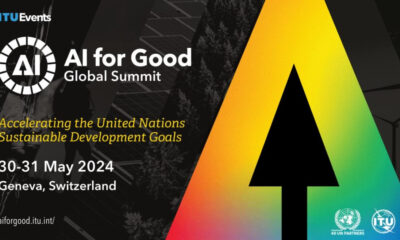

ITU’s AI for Good Global Summit 2024 puts tech to the test for people and planet
-


ITU wins Emmy Award for HDR-TV standard
-
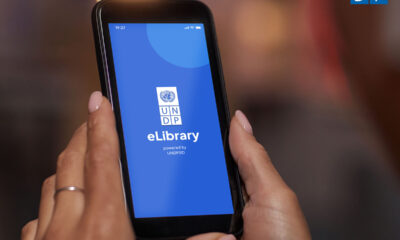

UNDP launches digital library app
-
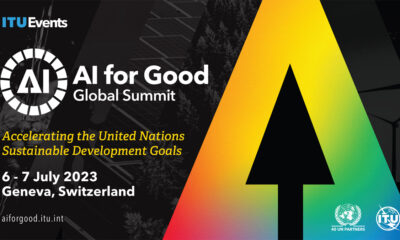

First-ever robot press conference scheduled for ITU’s AI for Good Global Summit
-
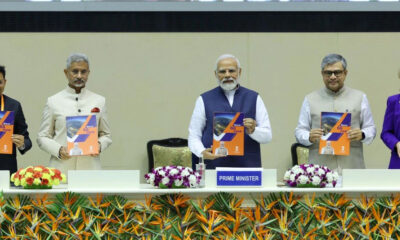

ITU opens Area Office and Innovation Centre in New Delhi
Tech
Web Summit to host hundreds of curated community meetups in Lisbon this November
Published
1 month agoon
September 13, 2024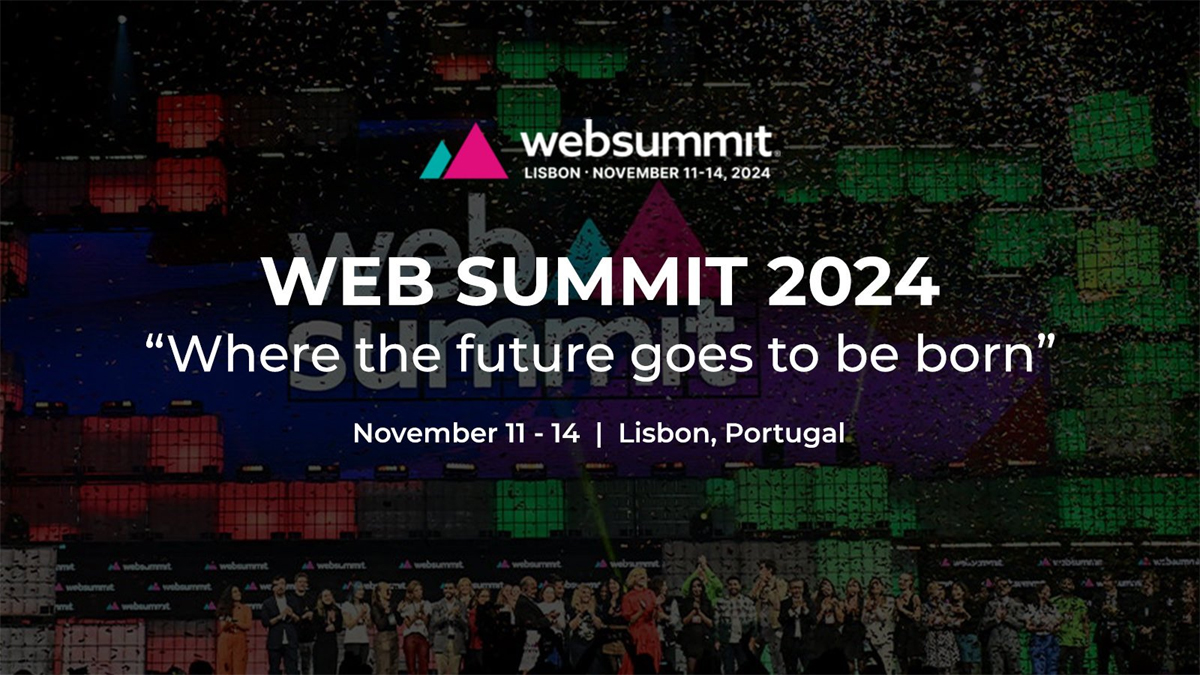
Web Summit has announced today that it will host hundreds of curated community meetups in Lisbon this November, powered by its proprietary software, Summit Engine.
This initiative is part of Web Summit’s renewed mission to foster meaningful connections and communities. By bringing people with similar backgrounds, interests and objectives together in community meetups, Web Summit hopes to make the event feel smaller and more intimate for attendees, as it continues to grow and scale across the world. Hundreds of these community meetups will take place alongside signature challenging discussions on how technology is shaping the world.
So far, this year’s top speakers include Yinon C. (Yinon Costica), co-founder of cybersecurity powerhouse WIZ , which recently made waves by turning down a US$23 billion offer from Google; Julie De Moyer , LVMH ’s recently appointed chief data and AI officer; Lidiane Jones , CEO of popular dating app Bumble Inc. , which harnesses AI to improve matchmaking; Cristiano Anon, CEO of Qualcomm, the company working to create bigger, better, and more affordable AI chips; and Meredith Whittaker, president of encrypted messaging app Signal, which is fighting against government measures to scan citizen’s private messages.
Also taking to the stage will be Alibaba.com president Kuo Zhang ; Škoda Auto CMO Meredith Kelly; Amazon Web Services VP of AI Matt Wood ; Meta’s global head of consumer marketing, Eshan Ponnadurai; Manchester United CEO Omar Berrada, and much more. They will be joined, by world comms@websummit.com leaders and changemakers, including Germany’s Vice Chancellor, Robert Habeck; Portugal’s minister of youth and modernisation, Margarida Balseiro Lopes, and exiled Venezuelan opposition leader Leopoldo López.
Global tech companies, including IBM, Adobe, Intercom, Samsung Next, and Niantic Labs will exhibit on the floor alongside financial giants such as Visa and American Express. Other notable partners include Novo Nordisk, Bosch, EDP, and KPMG.
New for 2024: Hundreds of curated meetings
Of course, Web Summit isn’t just about the speakers – it’s about the connections. That’s why this November, our curated meetups, powered by Summit Engine, will bring together attendees with shared roles or interests in AI, fintech, crypto, food tech, sustainability, and more.
To do this, Web Summit’s data science team uses in-house software to group attendees who have common interests and backgrounds, helping uncover emerging communities. This technology was tested this year at Web Summit Rio in April, and at Collision in Toronto in June. From data scientists in Uruguay and food tech startup founders and investors to public sector AI innovators, Web Summit wants to make sure that the right people find each other at our events. Attendees can use the Web Summit app to easily connect and stay in touch with those they’ve met long after the event ends in November
“This is going to be our biggest but also our smallest event yet … we aim to host thousands of community meetups at the event and across Lisbon in November. We are evolving from being one large event to becoming a collection of a thousand deep, interconnected experiences,“ said Paddy Cosgrave .
“Over the last 15 years, the world has changed in many ways, and we’ve always been committed to adapting and re-evaluating our mission and goals to meet evolving challenges, ideas, and global circumstances. We’re currently in an especially charged moment in time,” Paddy continued.
“We are bigger than ever, but our mission remains the same – connecting the people, companies and ideas that change the word. Ultimately, the best event experience is when you walk away with a stronger network than you came with,” added SVP of product Brian Flanagan .
Just announced
The full list of speakers at Web Summit is being announced today:
● Lidiane Jones, CEO of Bumble
● Anastasis Germanidis , co-founder and CTO of Runway
● Meredith Kelly , CMO of Škoda Auto
● Sarah Myers West , co-executive chair of AI Now Institute
● Patrick Kluivert, former footballer with Barcelona and The Netherlands
● Paula Goldman , chief ethical and humane use officer at Salesforce
● Omar Berrada, CEO of Manchester United
● Hans Niemann , chess grandmaster
● Meredith Whittaker , president of Signal Messenger
● Munya Chawawa, actor and comedian
● Atul Bhardwaj j, chief digital and technical officer at the LEGO Group
● Smita Hashim , chief product officer at Zoom
● Alex Hirschi, founder of Supercar Blondie
New speakers are being added regularly on the Web Summit speaker page
About Web Summit:
Web Summit is a technology events company, bringing together a global community of founders, entrepreneurs, business leaders, and investors to connect and exchange ideas about the technology and trends shaping the world. Web Summit events – including Web Summit in Lisbon, Web Summit Rio in South America, Web Summit Qatar in the Middle East, and RISE in Asia – have gathered nearly one million people since Web Summit’s beginnings as a 150-person conference in Dublin in 2009. Its newest event, Web Summit Vancouver, will launch in May 2025.
Useful Links:
Web Summit website: https://websummit.com/
Web Summit Flickr: https://www.flickr.com/photos/websummit/albums/
Web Summit YouTube: https://www.youtube.com/channel/UCJtkHqH4Qof97TSx7BzE5IQ
Tech
Countries strengthening cybersecurity efforts, but increased action still required
Published
1 month agoon
September 13, 2024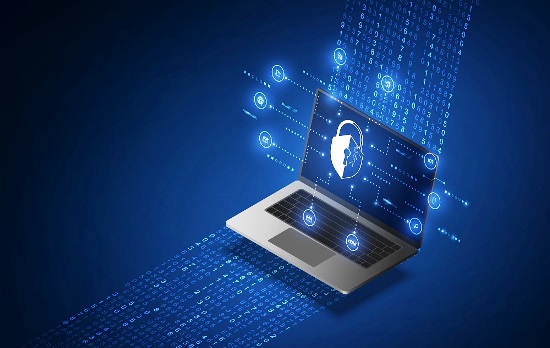
UN cybersecurity report assesses global progress in providing a safe and secure digital future for all.
Countries around the globe are improving cybersecurity efforts, but stronger actions are needed to meet evolving cyberthreats, according to the Global Cybersecurity Index 2024, released today by the International Telecommunication Union (ITU).
On average, countries have taken more cybersecurity-related actions and improved their cybersecurity commitments since the last index was released in 2021.
Worrisome threats highlighted in the report include ransomware attacks targeting government services and other sectors, cyber breaches affecting core industries, costly system outages, and breaches of privacy for individuals and organizations.
“Building trust in the digital world is paramount,” said Doreen Bogdan-Martin, ITU Secretary-General. “The progress seen in the Global Cybersecurity Index is a sign that we must continue to focus efforts to ensure that everyone, everywhere can safely and securely manage cyberthreats in today’s increasingly complex digital landscape.”
A new assessment with sharper focus
ITU’s Global Cybersecurity Index 2024 (GCI 2024) assesses national efforts across five pillars, representing country-level cybersecurity commitments: legal, technical, organizational, capacity development, and cooperation.
GCI 2024 also uses a new five-tier analysis, a shift that allows a greater focus on each country’s advances with cybersecurity commitments and resulting impacts.
The report places 46 countries in Tier 1, the highest of the five tiers, reserved for “role modelling” countries that demonstrate a strong commitment in all five cybersecurity pillars.
Most countries are either “establishing” (Tier 3) or “evolving” (Tier 4) in terms of cybersecurity. The 105 countries in these tiers have largely expanded digital services and connectivity but still need to integrate cybersecurity measures.
A “cybercapacity gap” – characterized by limitations in skills, staffing, equipment and funding – was evident in many countries and across all regional groups.
“The Global Cybersecurity Index 2024 shows significant improvements by countries that are implementing essential legal measures, plans, capacity building initiatives, and cooperation frameworks especially in strengthening incident response capabilities,” said Cosmas Luckyson Zavazava, Director of ITU’s Telecommunication Development Bureau. “ITU’s cybersecurity projects and programmes are supporting those national efforts to more effectively manage cyberthreats, and I hope that the progress demonstrated by this latest index encourages countries to do more in developing secure and trustworthy digital systems and networks.”
Regional and national assessments
According to GCI 2024, the Africa region has advanced the most on cybersecurity since 2021. All world regions show improvement since the last report.
The world’s least developed countries (LDCs) have also started making gains, though they still need support to advance further and faster. GCI 2024 data shows that the average LDC has now reached the same level of cybersecurity status that many of the non-LDC developing countries had in 2021.
Land-locked developing countries (LLDCs) and small island developing states (SIDS) continue to face resource and capacity constraints on cybersecurity efforts.
GCI 2024 includes individual assessments and provides a clear status report and a roadmap of activities to make further progress on cybersecurity.
Other key findings of the GCI
Legal measures are the strongest cybersecurity pillar for most countries: 177 countries have at least one regulation on either personal data protection, privacy protection, or breach notification in force or in progress.
Computer Incident Response Teams (CIRTs) are crucial for national cybersecurity: 139 countries have active CIRTs, with various levels of sophistication, up from 109 in the 2021 index.
National Cybersecurity Strategies (NCS) are becoming more prevalent: 132 countries have a National Cybersecurity Strategy as of 2024, up from 107 in the 2021 index.
Cyber awareness campaigns are widespread: 152 countries have conducted cyber awareness initiatives targeting the general population, with some also targeting specific demographics such as vulnerable and underrepresented populations, to create a culture of cybersecurity and address potential risks.
Incentives for the cybersecurity industry continue evolving: Governments are promoting the cybersecurity industry through incentives, grants, and scholarships, aiming to enhance cybersecurity skills and foster research in the field, with 127 countries reporting some form of cybersecurity-related research and development.
Many countries cooperate on cybersecurity through existing treaties: 92% of countries (166) reported being part of an international treaty or comparable cooperation mechanism for cybersecurity capacity development, or information sharing, or both. Putting cybersecurity agreements and frameworks into practical operation remains challenging.
Capacity development and technical pillars are relatively weak in most countries. 123 countries reported having trainings for cybersecurity professionals, up from 105 in 2021. In addition, 110 countries had frameworks to implement nationally or internationally recognized cybersecurity standards, up from 103 in 2021.
Capacity development initiatives need to be reinforced: 153 countries have integrated cybersecurity into national curricula at some level, but cybersecurity trainings and awareness-raising varies widely across regions. Developing a strong domestic cybersecurity industry is essential to sustain progress.
Countries need to focus on protecting children online: 164 countries have legal measures in place for child online protection; only 94 countries reported associated strategies and initiatives, indicating a gap in implementation.
Cybersecurity assessments leading to action
As cybersecurity continues to evolve, GCI offers a clear picture of where countries are and a roadmap of activities to make progress. The report offers 11 key recommendations, from enhancing critical infrastructure to providing cybersecurity training.
GCI 2024 suggests that countries can prioritize high-impact activities, including:
- implementing legal measures applicable across all sectors;
- developing and regularly updating a comprehensive national cybersecurity strategy and a practical, concrete action plan;
- enhancing incident-response capabilities;
- delivery of capacity building and training to cybersecurity professionals, youth and vulnerable groups to strengthen cybersecurity skills;
- fostering domestic and international cooperation and collaboration on information-sharing, training opportunities, and capacity development.
ITU, the UN Agency for Digital Technologies, aims to connect the estimated 2.6 billion people who currently remain offline. Most of the globe’s offline population live in developing countries, with the widest gaps in the least developed countries.
ITU established the Global Cybersecurity Index in 2015. The report series identifies areas for improvement and encourages countries to act on strengthening cybersecurity.
Tech
Best Computer Hub Ltd. Set to Revolutionize Bangladesh’s E-Commerce Market
Published
1 month agoon
September 11, 2024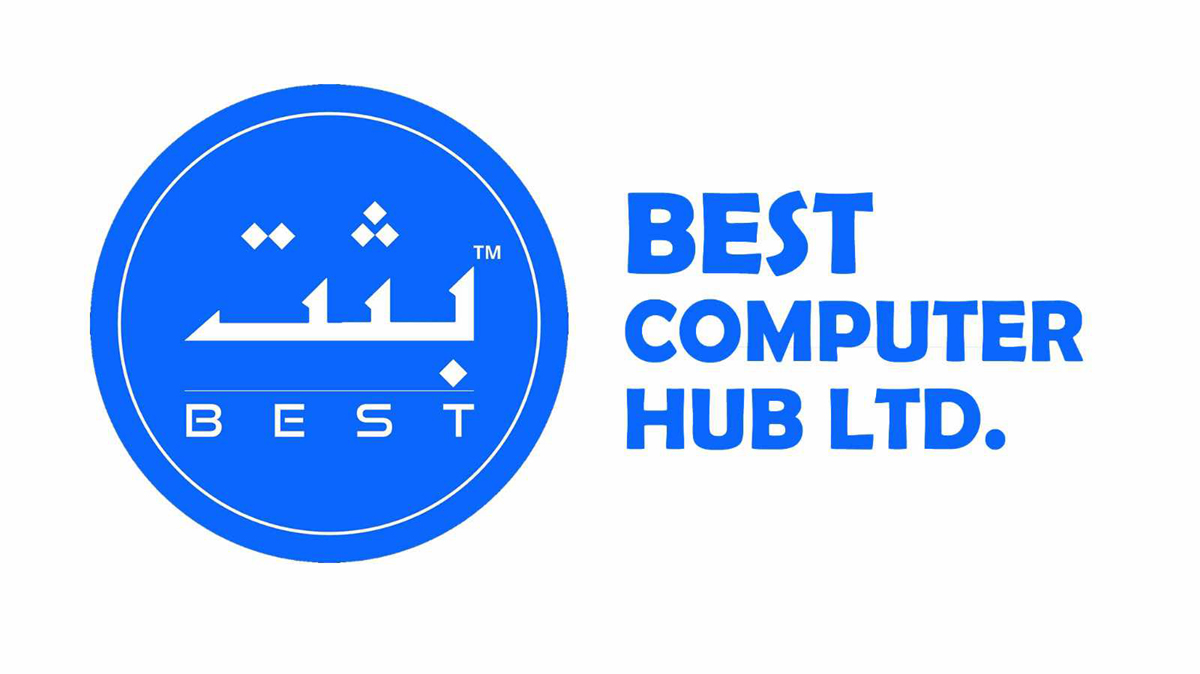
Best Computer Hub Ltd. (BCHL) is poised to make a significant impact on the e-commerce landscape in Bangladesh with the official launch of its online platform on September 1, 2024. Specializing in computer accessories, gadgets, and IT solutions, BCHL aims to become the go-to hub for both retail and wholesale customers across the country.
Operating from GM Plaza, Level-1, 93 New Elephant Road, Dhaka-1205, BCHL will offer a diverse range of products through its website bestcomputerhub.com. The company’s product categories include Brand Laptops & PCs, Gaming Components, Networking Components, Smart Home Appliances, and more. Each product is rigorously checked to ensure top quality, reflecting BCHL’s commitment to customer satisfaction.
BCHL collaborates with top brands like MSI, HP, Antec, Razer, and Noctua, ensuring customers have access to the latest tech at competitive prices. In addition to serving individual consumers, BCHL also partners with corporate clients, including banks, hospitals, and telecom companies, providing comprehensive tech support and IT hardware.
With a focus on quality products and exceptional customer service, Best Computer Hub Ltd. is set to become a leader in Bangladesh’s IT and electronics industry. For more information, contact support@bestcomputerhub.com.

Smart Technologies syndicate sips millions of dollars from IDRA automation

Web Summit to host hundreds of curated community meetups in Lisbon this November

Countries strengthening cybersecurity efforts, but increased action still required









